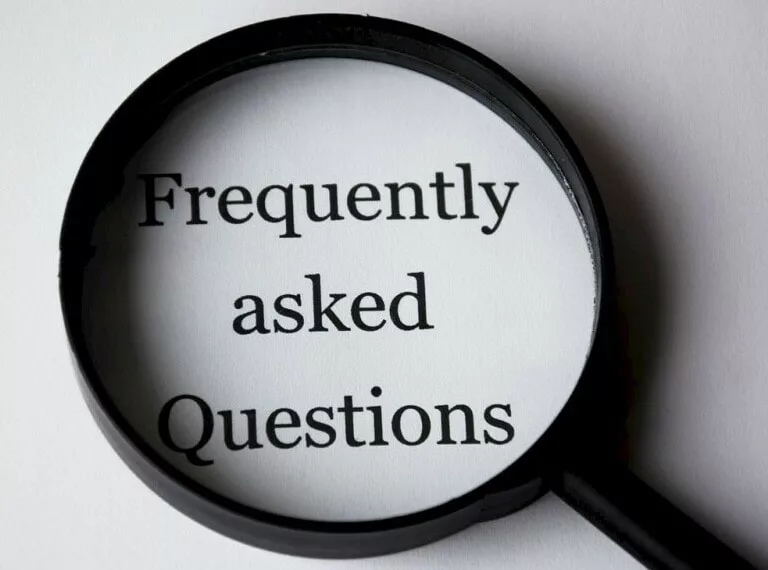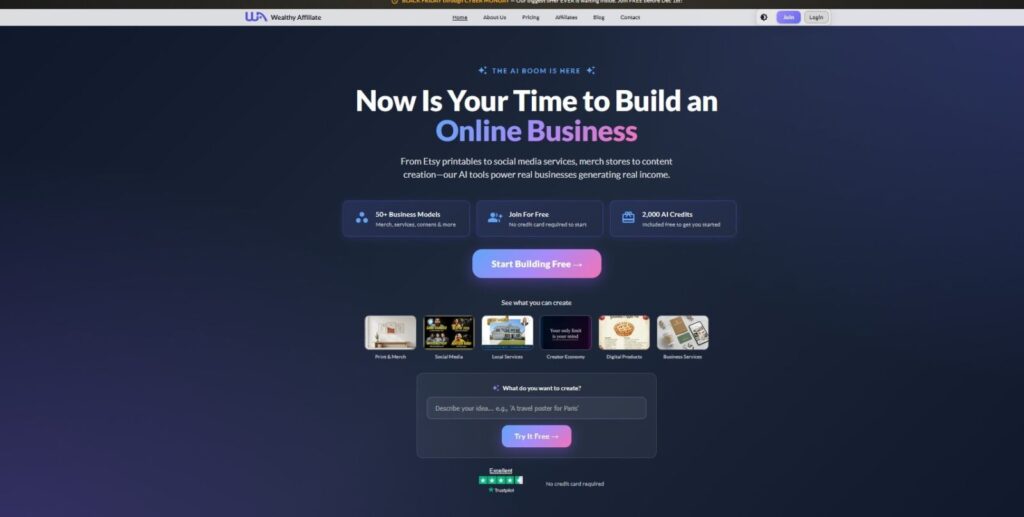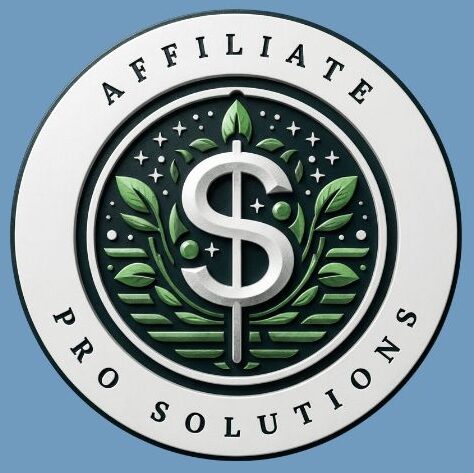Topic – Search Engine Optimization
Post Reading Time – 13 Minutes
Have you ever wondered why some blogs soar to the top of the search engine results while others seem to be completely invisible? The answer often comes down to three very important letters – SEO. In this SEO Checklist For Bloggers post, I’m going to take you through some practical steps to help your blog get the visibility it deserves.
SEO Checklist For Bloggers – Steps You Shouldn’t Miss
A strong SEO Checklist For Bloggers covers all of the essentials such as – keyword research, optimized titles and headers, quality content, alt tags for images, internal and external links, mobile friendly design, fast page loading speeds, and consistent posting. Do you want the full details? Check out the complete checklist here!
What You’ll Lean From This Post
- Long Tail Keywords – Focusing on these helps you to target specific audiences. This makes it easier for you to reach your audience and see more interaction, since there’s less competition.
- Good Use Of Meta Titles/Descriptions – This will really increase your visibility in the search engine results, thus encouraging users to click on your content.
- Keeping Your Content Fresh – Updating content will make sure it remains relevant, which can positively affect your rankings and attract more traffic.
- Considering Your End User – Fast loading pages and mobile friendly designs are very important for the user experience. These will keep visitors on your site longer and help to lift your rankings in mobile searches.
- Effective Internal Linking – Internal linking will encourage readers to look around more content on your site. This will increase your page views and the time spent on the site.

Start Your Training
- Build Your Website & Earn Revenue
- Support, Tools & Training Included
- Complete with Business HUB
- Artificial Intelligence Writers
- My Personal Support
- No Risk Free Starter Account
- FREE BONUS AI CREDITS
Search Engine Optimization, or SEO, is what helps your content reach the people searching for it. If it’s done well, your blog has a much better chance of being seen. But when it’s done poorly, your blog can easily end up being overlooked and somewhat forgotten.
To get SEO right you need to go about providing value where people are looking for it. If you miss the mark on this, you will lose traffic and miss out on the readers, connections, and opportunities that all come with being discovered.
With the right SEO strategy, you will be able to make sure that your content is seen and makes an impression with your visitors. If you want your blog to stand out, it starts with building a solid foundation right from the start.
Let’s take a closer look at how to build that foundation.
Building a Strong SEO Foundation for Blogging Success
To get your blog noticed, you need a good and solid SEO foundation in place. A strong base from the very beginning will set you up for success and makes your content easier for the search engines and your readers to find.
Getting started with SEO might feel intimidating, but the first steps are actually pretty simple to carry out.
Set Up Your Google Search Console and Bing Webmaster Tools
These are really important and you can think of these as your blog’s control panel. They give you extremely valuable information into how your blog is performing in the search results and help you spot any issues.
Install Google Analytics
This tool can help you to track how your visitors interact with all of your content. Knowing what’s working and where you can improve is an important part of building a successful blog.
Pick an SEO Plugin
If you’re using WordPress, plugins like Rank Math, Yoast, or All In One SEO can be a huge help. They’re simple to set up and once in place will guide you in optimizing each post with real time suggestions, of course making SEO less intimidating. I personally use Yoast and it offers me everything I need and without issues.
Create and Submit Your Sitemap
A sitemap outlines your site’s content, making it easier for search engines to find and index your pages with more effeciency. Along with a well configured robots.txt file, it also helps search engines to understand how to navigate your site efficiently.
Make Sure Google Can Index Your Site
You can use Google Search Console to check for any manual actions that might block your site from appearing in the search results. Fixing these early on can help you to avoid headaches later on.
By having these steps mentioned all in place, you’ll create a structure that both users and the search engines will appreciate. They will attract visitors and help you keep them interested, engaged and coming back again for more.

SEO Keyword Research Strategies for Bloggers
Choosing the right keywords is one of the most important steps in building a successful blog. To make things easier, let’s go through the importance of keyword research so you can create content that’s optimized for search engines and valuable to your readers.
Focus on Conversion Driven Keywords
Start off by identifying the keywords that are closely tied to conversions. These are often referred to as “money” keywords. Think about the products or services you’re offering. What phrases would people search for when they’re ready to buy something or take some kind of action?
Look Into Long Tail Keywords
Once you’ve identified your primary keywords, look a little more into any variations. Long tail keywords are longer, more specific phrases that have a somewhat less competition.
These can drive targeted traffic to your blog and often lead to a higher engagement rate because they address specific needs or questions.
Additional SEO Info & Resources
Analyze Your Competitors
Always take a look at what your competitors are ranking for and where their traffic comes from. Tools like Ahrefs or SEMrush can help you uncover the gaps in their strategy that you can then go ahead and fill.
Just remember that the overall goal isn’t just to copy them but to find opportunities where you can stand out.
Understand Search Intent
Consider what your audience is really looking for when they use certain search terms. Are they ready to buy something, or are they just out gathering information?
Write your content to match their intent, whether it’s providing answers, solving a problem for them, or guiding them toward a decision.
Assess The Ranking Difficulty
When you are starting out, always try to avoid competing for high competition keywords dominated by the more established sites.
Instead, put your focus on keywords you can realistically rank for. Over time, this will help you build your blog’s authority and expand your reach.
Balance Your Keyword Strategy
Try to use a mix of low, medium, and high competition keywords where possible. This can allow you to achieve some quick wins while also building some momentum for long term growth.
If you focus on these keyword research strategies, you’ll lay down the groundwork for content that attracts visitors and keep them engaged.
In the next section, we’ll look at optimizing your keywords within your high quality blog content.
How to Create Engaging SEO Content That Ranks
Your titles and meta descriptions are a first impression for potential visitors as they’re the first thing the readers see, and they need to grab attention. A good title and description should be clear, intriguing, and encourage people to click through to read your content.
Once your content is out there and live, then it’s time to review and improve it. A content audit will help you spot any issues and find more opportunities at the same time.
Refreshing your older posts with updated information or improved formatting can make a big difference.
Also take care of your images and internal linking strategy.
Yes, they might not always get much attention, but they’re so important for both the user engagement and for SEO.

Optimized images with proper alt text will improve loading times and also help visually impaired users and the search engines to understand your content better.
Internal links guide readers through your blog by connecting them to related posts and resources. This keeps visitors on your site longer, increases page views, and also helps to distribute SEO value across your site.
For consistent growth, make updating your content part of your routine. Search engines love fresh content, and it shows your users that your site is active and relevant.
As a final tip, always focus on quality over the quantity.
Instead of always aiming for a specific word count in every post, pack your information with insights that genuinely answer your readers’ questions.
Once you’ve done that, make it easy to share by placing social sharing buttons in prominent spots to encourage your audience to spread your hard work.

Your Full SEO Checklist For Bloggers

| Essential Tools | Leverage tools like Google Search Console and Bing Webmaster Tools to manage site visibility. Track performance metrics using Google Analytics. Install an SEO plugin, create a sitemap, and address flagged issues promptly. |
| Keyword Planning | Identify audience-specific keywords. Focus on long-tail keywords, research competitors, and plan keyword density effectively. Assess ranking difficulty for better targeting. |
| Improving Your Site | Resolve broken links, enhance loading speeds, and optimize images. Use structured data, update titles and meta descriptions, and include internal links for a better user experience. |
| Mobile Optimization | Ensure mobile compatibility with simple navigation. Optimize loading speeds, test across devices, and prioritize mobile-first design for better user engagement. |
| Content Maintenance | Regularly update older posts for relevance. Focus on readability, proofread content, and maintain high-quality standards for better audience engagement. |
| Backlink Strategy | Research competitor backlinks, request links for brand mentions, and prioritize links from relevant sites. Use descriptive anchor text to enhance link value. |
| Monitoring Progress | Analyze data to identify effective strategies. Monitor performance, stay informed about SEO trends, and ensure search engines can index your site seamlessly. |

Frequently Asked Questions – FAQs
What does SEO mean for bloggers?
SEO, or Search Engine Optimization, is about making your blog easier for search engines to understand and recommend to readers. For bloggers, it’s important for getting organic traffic, meaning visitors who find your blog naturally through search engines like Google. Good SEO practices help your blog stand out in the search engines.
How long will it take for my SEO efforts to pay off?
SEO takes time, and results will depend on your niche selection, competition, and the effort you put in. On average, you may notice small changes in a few weeks, but bigger improvements often take 3 to 6 months and more. Think of SEO as a long term investment that grows with consistency and quality hard work.
Which SEO tools should I start with as a beginner?
As a beginner, it’s always best to stick with the simple and effective tools:
An SEO Plugin (if using WordPress) – Plugins like Yoast or Rank Math will guide you in optimizing your posts step by step. These tools are straightforward to use and provide helpful information to improve your SEO.
Google Search Console – Helps monitor your blog’s visibility in the search results.
Google Analytics – Tracks your visitor behavior and shows what content works best.
How often should I go back and update my blog posts?
It’s always a good habit to revisit and update your blog posts at least every six months. Refreshing your content will make sure it stays relevant, which both the search engines and readers both appreciate.
Add new details, update outdated information, and recheck your keywords to keep your posts competitive.
Is mobile optimization really that important?
Yes! Even if most of your readers are currently on desktop, mobile optimization is still important. Search engines prioritize mobile friendly websites because more and more users are browsing on their phones.
A blog that works well on mobile will ensure a smooth experience for all visitors, no matter how they access your site.

Wrapping Up Your SEO Journey for Blog Success
So, there you have it, your complete guide to navigating your way through SEO.
I know it’s a lot to take in, but SEO is an ongoing process. The important thing is to stay consistent and change as the online world changes. A strong SEO strategy isn’t a one time effort and you need to be keeping your blog visible and valuable to readers.
I hope this SEO checklist for bloggers has been helpful for you and that you will find it achievable. The goal overall is to make your blog discoverable by search engines and provide a resource your audience truly values.
Remember that SEO isn’t static. As online behaviors and search engine guidelines change, staying updated is really important.
Try to make it a habit to revisit your past work and stay on top of things regularly.
A Quick Note From My Experience
When I started optimizing my blog for SEO, I remember feeling completely lost within all the tools and techniques that were available at the time. One of the earliest changes I made was updating a few older posts with better keywords and fresh information. Within weeks of doing this, I noticed a steady increase in my traffic levels.
Another important lesson for me was realizing the value of mobile optimization, something I initially did not pay much attention to. Once I made my blog mobile friendly, my bounce rates decreased, and the engagement from my readers improved.
SEO takes time, but consistent effort and small improvements add up over the long run.
If you’ve found this checklist helpful, go through it one step at a time. There’s no rush, so go slow and focus on building a strong foundation for your blog, and the results will follow.
If you have questions or want to share your progress, I’d be happy to hear from you and offer advice where I can.
Keep at it, as small steps can lead to big results.
Thank you and please leave your thoughts and comments below.
Chris
Wealthy Affiliate
This is where my journey into the online world began, and it’s still the community I use for learning, tools, and support while working on my own projects.

About Chris Towers – Follow Me

My name is Chris Towers, and I run Affiliate Pro Solutions. I work with websites, content, and affiliate projects, and this website is where I share what I’ve learned from doing that work.
Most of what I write about comes from researching hosting companies, tools, and platforms that people use when building websites or trying to earn online. I look at how things are set up, what’s included, and where people often get caught out later.
I’m not connected to the companies I review beyond standard affiliate partnerships. This site does include affiliate links, but the aim here is to explain how the services work rather than push anyone into a decision.
You’ll find me on
Related
- How To Optimize Your Website For Voice Searches That Rank
- Pillar Pages Explained And How They Improve Your SEO
- How Does Internal Linking Help SEO? Better Rankings Made Easy!
- How To Drive More Traffic To Your Blog Using Medium
- How To Get More Visitors To Your Website For Free (Proven Tips)
- How To Choose The Right Domain Name For A Website
Just to be open with you, this page includes affiliate links. If you click on one of these links and make a purchase, I earn a small commission. There is no extra cost to you at all. This simply helps support the content I share here. Thank you for your support, it really is appreciated.








Chris, great checklist on SEO for bloggers! You’ve really nailed down the essentials in a way that’s both thorough and easy to follow.
Love how you highlight the importance of blending reader engagement with search engine savvy. It’s super helpful for bloggers looking to boost their online presence without getting lost in the technical weeds.
Great job making SEO feel more approachable and less like a mysterious art form!
Keep up the awesome work!
Thank you, I am happy you found this useful!
Chris
Such a fantastic article! I am bookmarking this for future reference. I have a blog post and as you said, I have some articles that shoot straight up in rankings, while others that I felt were good did not rank at all. Most likely they are lacking in those three letters, SEO.
I feel that I need to comb through each article/review and see where I am lacking with my SEO and possible keyword issues. With the expert guidance of your article (site), I believe I will be very successful.
I did take note that there are more articles to check out on SEO, trust me I will be combing through your site for all the tips I can find.
What is your top recommendation for keyword research? I would like to know as much as possible about this, I was unaware of the term even.
Thank you so much for this most informative article.
Stacie
Thanks for reaching out Stacie. There are lots of good keyword research tools on the market to be honest, but I use one that is included as a package with all the tools and education needed to build a business online.
Check it out in the link if you want to know more and let me know if you need anything along the way.
Thanks
Very educational article on the topic. One of the stand out things to me that you mention is to pick a variety of low, medium and high competition words. I had always thought the lower the better, especially when starting out, but the point you make on this does make a lot of sense. And also the alt text, I didn’t realise it played such a pivotal part, so thank you for these tips.
The 50 point check list is so helpful, not just for the beginner but also as a reminder to some that already work online, and may forget to do one or two of these as they get busier. Great article.
Thanks Ryan, glad this helped out you. If you need something just let me know.
Chris